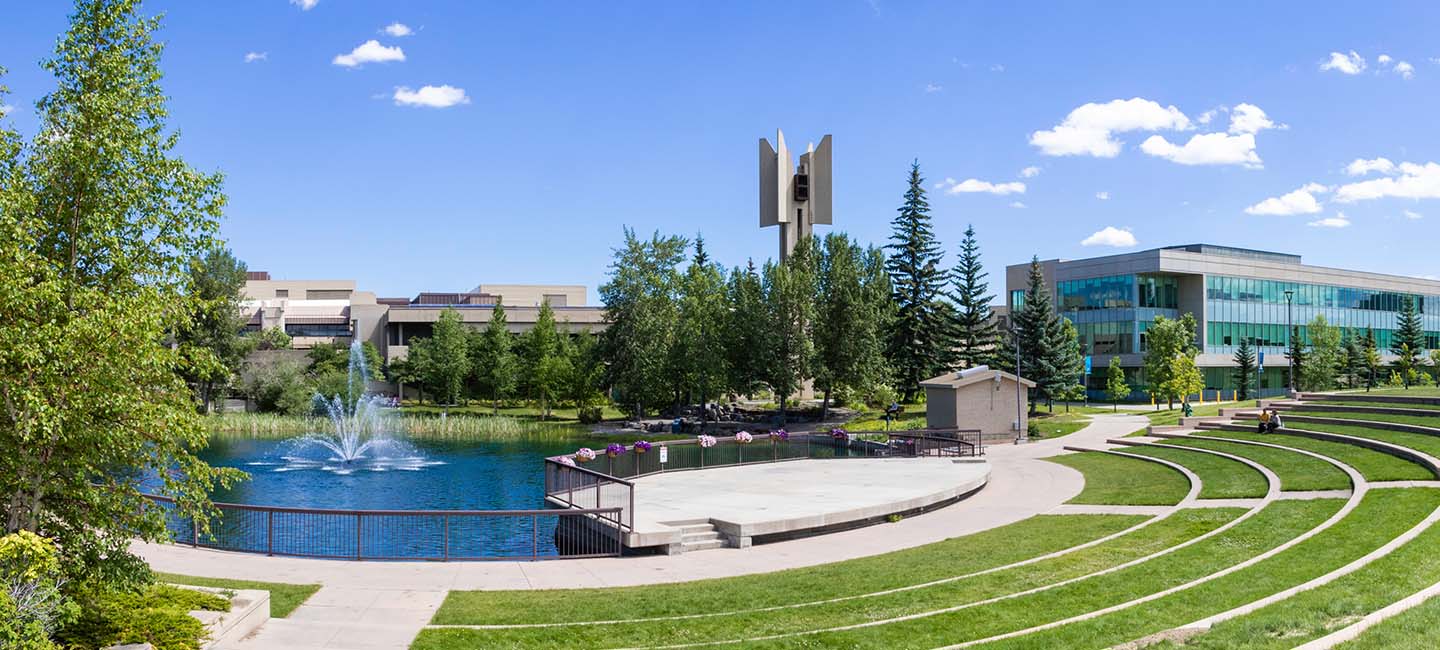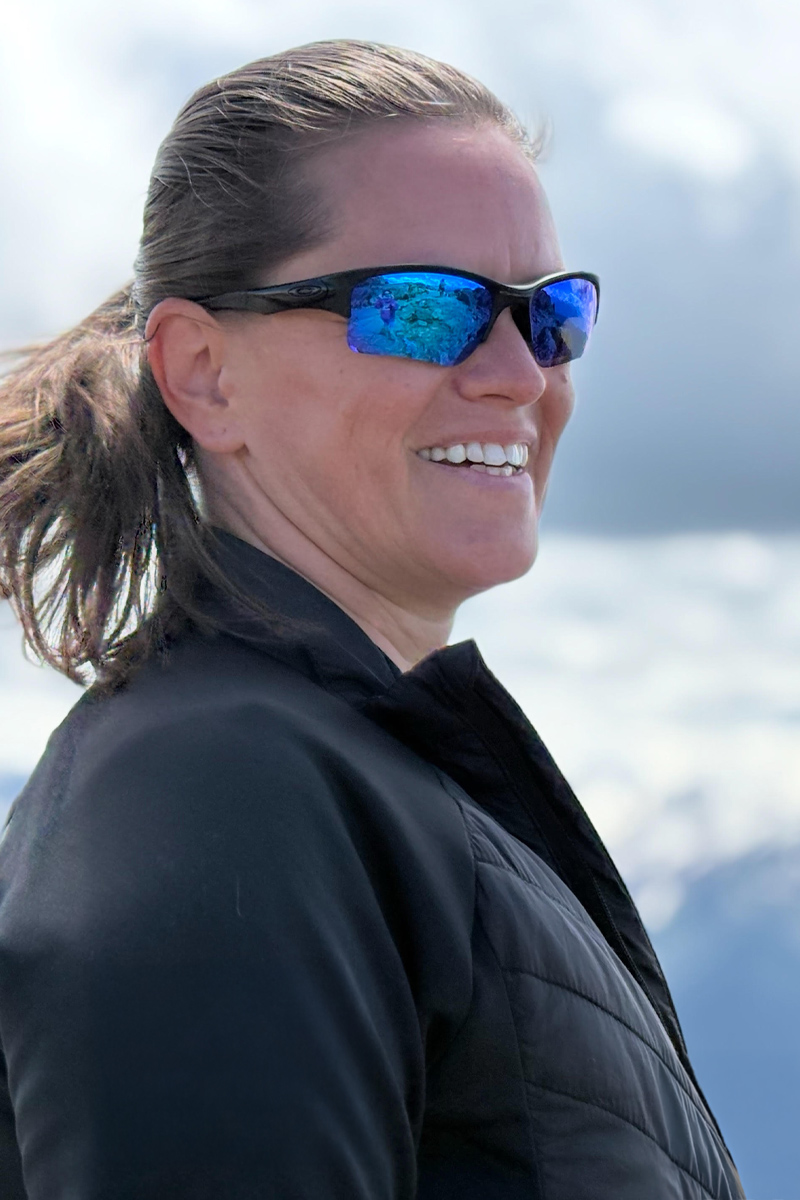
Why study social work?
Empower people, challenge injustice and support communities through professional social work practice.
Mount Royal University’s Bachelor of Social Work empowers you to make a meaningful difference supporting individuals, families and communities through ethical, trauma-informed and anti-oppressive practice. Dive into social justice, diversity and Indigenous ways of knowing while building hands-on skills in the classroom, simulation labs and supervised field placements. Graduates are eligible to register with the Alberta College of Social Workers and ready to lead change in diverse social settings.
Choose from two dynamic concentrations — Generalist Social Work or Child Intervention — to shape your unique career path.
Generalist Social Work
Support people of all ages through a wide range of life challenges using strength-based, inclusive approaches. You’ll build practical skills and learn intervention strategies for work in health, justice, school and community settings.
Child Intervention
Build on the foundations of generalist social work practice with a focus on supporting children and families facing complex challenges. Learn how to assess risk, create safety plans and navigate things like court involvement and interagency case management. This concentration prepares you for a career in the child intervention sector, where you’ll make a real difference in people’s lives.
Program highlights
- Study topics like mental health, addictions, trauma, advocacy and Indigenous perspectives
- Graduate ready to register as a professional social worker in Alberta
- Build practical skills in practicum placements, simulation labs and classroom-based learning
- Take the opportunity to broaden your perspective through study abroad or field school programs
- Choose your path: Generalist Social Work or Child Intervention concentration
Career possibilities
What jobs can I get with a social work degree?
Graduates are equipped to make an impact, working alongside individuals, families and communities in a variety of rewarding roles and dynamic settings. Potential career paths include:
I found that the most beloved part of my program so far has been the relationships you build not only with your profs and Elders, but your cohort of students.
— Jae Barker
Current Bachelor of Social Work student
Curriculum and courses
What courses will I take in social work?
Build the knowledge and skills to confidently deliver ethical, inclusive and culturally safe social work services that truly make a difference.
Explore full curriculum and coursesYear 1
|Years 2-4
Curriculum snapshot – Year 1

Experiential learning
At MRU, experiential learning is woven throughout the Social Work degree, connecting classroom theory to real-world practice.
- Complete your work placement in diverse community, healthcare and government settings
- Gain specialized training in child intervention practices, working with children, families and communities
- Develop practical skills in engagement, assessment, intervention and advocacy through hands-on experiences
- Broaden your perspective through immersive study abroad and field school experiences
Admission requirements
When you apply to MRU, you’ll need to meet both general admission requirements and any additional criteria specific to your chosen program. Requirements can vary, so it’s important to review what’s needed for your area of interest.
Select your admission category:
High school
Post-secondary transfer
Mature student
Admission category: High school
High school applicants must submit five Grade 12 courses for admission. These five courses must include the required subjects for the program you’re applying to. These required subjects are part of Group A.
To complete your five courses, additional subjects may be used from Group A, B, or C.
More admissions info for high school applicantsWhat are the requirements for the Bachelor of Social Work?
- English Language Arts 30-1 - 65%
- Social Studies 30-1 or Social Studies 30-2 or Aboriginal Studies 30 - 60%
Applying from another province or country?
If you're applying from outside Alberta, you'll need to know which of your courses match Alberta Grade 12 courses.
Check out our provincial equivalencies chart if you're from another Canadian province or the international credentials chart if you're applying from outside Canada.
If English is not your first language, you’ll need to meet two separate English requirements to be admitted to Mount Royal:
- You’ll need to successfully complete an English course if it’s part of your program’s admission requirements
- Show that you meet Mount Royal’s English Language Proficiency (ELP) requirements
What are the requirements for the practicum in the Bachelor of Social Work?
The following may be required for social work practicum placements.
Police Information Check
Provincial legislation requires that new employees and volunteers (including students) in publicly-funded agencies require a Police Information Check (PIC) that includes a Vulnerable Sector Check. Private agencies may have the same requirements. Social work requires that all students complete the required PIC and an Intervention Record Check (IRC). Agencies may require students to provide a copy of these checks prior to starting the practicum. Students may be required to obtain more than one Police Information Check and Child Intervention Record Check during their studies. Related costs are the responsibility of the student. It is each practicum agency’s decision to accept or reject a student for placement based on the results of police information or other background checks. Since both completion of course requirements and eventual employment in a field of study may be dependent upon the results of such checks, students who have concerns should discuss the matter with the practicum field director or the academic director in order to make appropriate plans for practicum and/ or prior to applying for admission.
Immunization
Proof of up-to-date immunization (including rubella) status may be required and is the responsibility of the student. All associated costs are the responsibility of the student. Required immunizations may vary based on the placement.
Mask Fit Testing
As a prerequisite for placements in acute care settings, students must be fitted for N95 masks in accordance with Alberta Health Services policy. Mask fit-testing is valid for two years or less if you have weight gain or loss greater than 4.5 kilograms, or following a nasal fracture or facial scarring. Evidence of mask fit testing is to be provided to the coordinator of advising and practicum, as well as the designated practicum site. All costs associated with this service are the responsibility of the student.
Cardiopulmonary Resuscitation (CPR) Certification
Increasingly, acute care settings and community agencies are requesting that social work practicum students be CPR certified. Students must provide annual proof of current CPR Certification. Evidence of certification is to be provided to the coordinator of advising and practicum. All associated costs are the responsibility of the student.
Admission deadlines
Fall 2026 intake
Early admission
Oct. 1, 2025 - Feb. 1, 2026
Ongoing admission based on program space and availability
Feb. 2, 2026 - programs closed
What is early admission?
During the early admission period, all applications are treated as though they were received at the exact same time. This means all competitively qualified applicants will be accommodated. At MRU, we actually receive most of our applications and fill many of our programs from applications submitted during early admission. It is an ideal time to apply and helps expedite the process so you hear back earlier too.
Early admission deadlines
Fall Semester:
Early admission is open from Oct. 1 to Feb 1.
Winter Semester:
Early admission is open from Oct. 1 to Nov. 1.
Costs
We know your investment in post-secondary education is a big deal. Make sure you’re on the right financial track by reviewing the costs, scholarships and financial support available.
How much does the Bachelor of Social Work cost?
The cost of your studies depends on a few things, like the program you choose and whether you’ll live at home or in Residence.
To get a better idea of what you might spend, try using our first-year student budget estimator. It gives a detailed breakdown of estimated costs.
You can also visit our tuition and costs page for full details on tuition and fees for a full year.
Does MRU offer scholarships or financial aid?
At Mount Royal, we want you to focus on your education, not worry about how to pay for it. There are many ways to help cover the cost of your studies.
Scholarships and bursaries
Mount Royal gives out over $5 million each year in scholarships and bursaries! These awards look at things like your grades, financial need and your involvement in school or the community.
Financial aid
There are financial aid options from the provincial and federal governments for both full-time and part-time students. These include student loans, grants and bursaries.
Other resources
You can also explore other ways to pay, like using RESPs (Registered Education Savings Plans) or CPP (Canada Pension Plan) benefits.
How do I apply for scholarships and bursaries?
To be eligible for scholarships and bursaries, you must apply for Early Admission from Oct. 1 to Feb. 1. You can apply for scholarships and bursaries from Nov. 1 to March 1.
Have questions?
Our info sessions are a great way to explore MRU programs, learn how to apply and connect with people who are here to help.
Book an info sessionConnect with the Admissions and Recruitment Office for more one-on-one support.
Contact us
Why MRU
At MRU, learning is about more than lectures and textbooks. It’s about evolving through experience. With small class sizes, supportive faculty and hands-on opportunities, students are encouraged to think critically, push boundaries and uncover what they’re capable of. MRU helps students build the skills, confidence and curiosity to shape meaningful futures in Calgary and beyond.
Discover why MRULearn about the additional supports and services we have available specifically for:
International students Indigenous studentsFaculty of Healthy, Community and Education
Mount Royal is pleased to offer the Bachelor of Education — Elementary, the Bachelor of Social Work, the Bachelor of Child Studies degree, including majors in Child and Youth Care Counsellor and Early Learning and Child Care, and a diploma in Social Work.
Virtual information sessions
Select a session that suits you. Choose from general information, specific by program, drop in Q&A, or attend an Indigenous or international student session.
Sign-up

